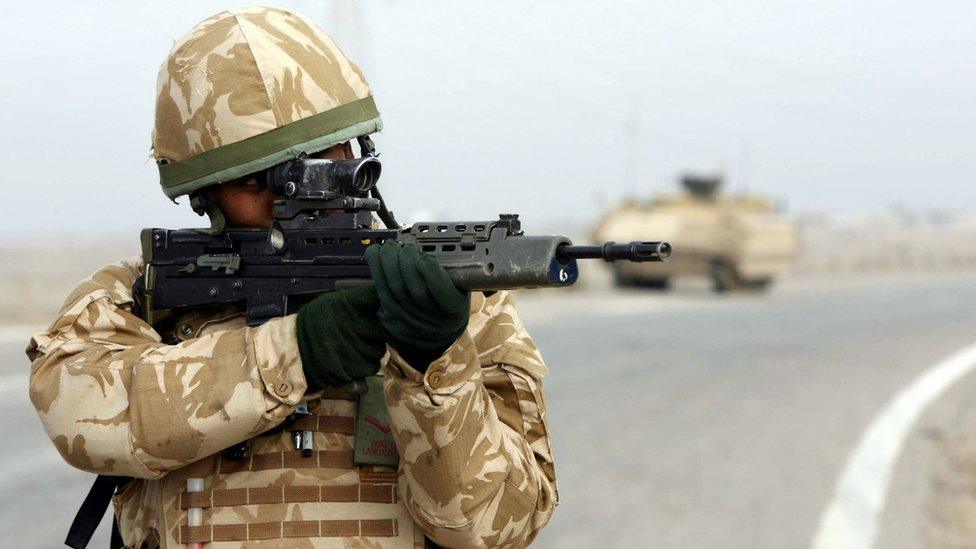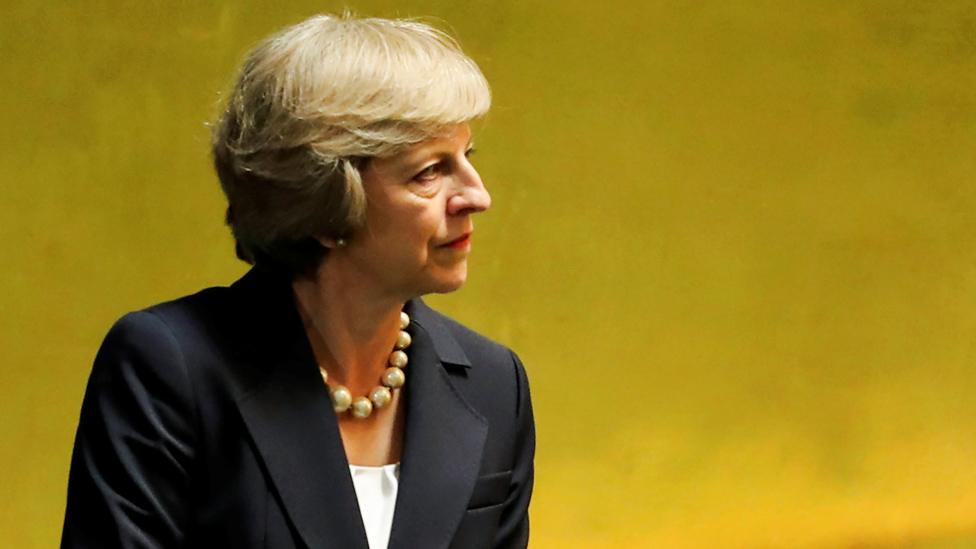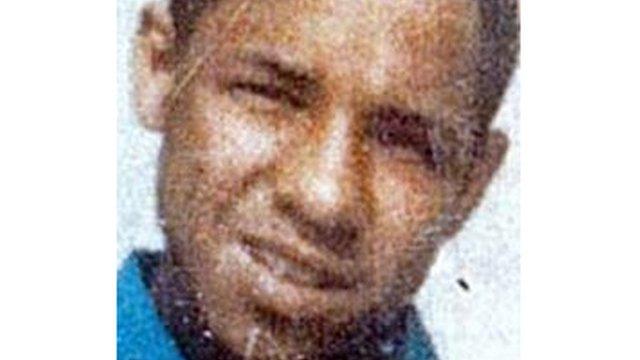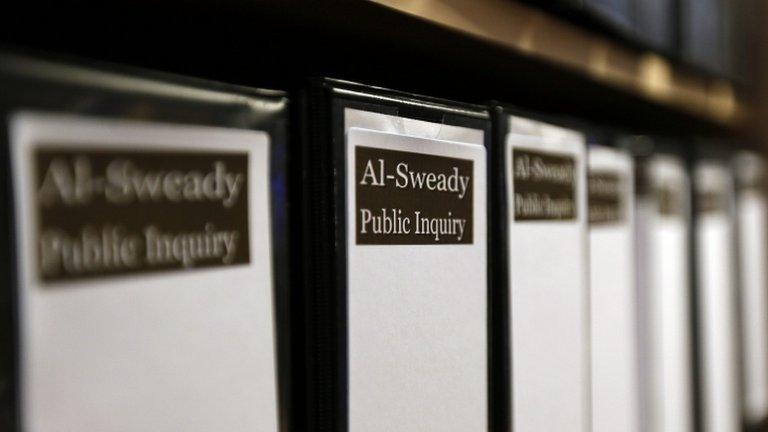Iraq UK forces: May 'won't allow vexatious allegations'
- Published

Prime Minister Theresa May has said she will not allow an "industry of vexatious allegations" against UK troops over claims of abuse in Iraq.
The Iraq Historic Allegations Team (IHAT) is examining serious allegations following the 2003 invasion.
Mrs May said allegations would be investigated but steps had been taken to tackle abuse of the system.
Concerns have been raised over the "industrial scale" of claims lodged with IHAT supported by legal aid.
Mrs May said Britons should be proud of the work done by the armed forces and the disciplined way in which they operated.
She insisted that action had been taken to address false claims and IHAT's work would be completed by the end of 2019, after a review of the system by former director of public prosecutions Sir David Calvert-Smith.

Theresa May was visiting the UN General Assembly in New York
Speaking to reporters travelling with her to the UN General Assembly in New York, Mrs May said the UK should be proud of the "fantastic job" the armed forces had done in defending the UK.
She added: "We can be proud also of the disciplined way in which our armed forces operate.
"But what is important is, if there are allegations - proper allegations - of criminal activity, those need to be investigated.
"But what we do need to make sure is that there isn't an industry of vexatious allegations coming forward. I think measures have been taken".
'Absurd'
One solider, who wishes to remain anonymous while he is being investigated over claims involving the death of an Iraqi teenager, told BBC Radio 4's Today programme the Army had failed in its most basic duty of care.
He added: "The reality of 21st century warfare is now that anyone in the world, even our enemies, can make any allegation against British forces, no matter how absurd, and the British government and army will stand and watch in utter indifference as it destroys their lives and careers."
Conservative MP Johnny Mercer, who is leading a select committee inquiry into servicemen going through the judicial process, said the situation was a "national disgrace".
"We have asked a generation of our young people to conduct a deeply unpopular war, poorly resourced, poorly planned and when they return to the UK they are then pursued for decades afterwards by spurious allegations," he said.
But Lt Col Nicholas Mercer, the former chief legal adviser for the Army in Iraq, said to date the government had paid out £20m in compensation to claims and this proved the claims were not all spurious.
There have been 326 settled cases, he added.
A government spokesman said the legal system had been "abused to falsely impugn our armed forces" and it wanted to put an end to that.
"Equally, our armed forces are rightly held to the highest standards and, whilst rare, where there are credible claims of criminal behaviour, we should investigate them. Stamping out the many spurious claims will mean IHAT is better able to focus on the few credible ones," he added.
'Alleged victims'
Established in November 2010, IHAT was set up to investigate allegations of murder, abuse and torture of Iraqi civilians by UK military personnel between 2003 and 2009.
The claims, external range from ill treatment during detention to assault and death by shooting.
The team, headed up by former senior civilian police officer Mark Warwick, has considered at least 1,514 possible victims , external- of whom 280 are alleged to have been unlawfully killed.
Earlier in the year, former PM David Cameron also voiced an intent to stamp out what he described as "spurious" legal claims against British troops.
In addition to IHAT the government also set up the Al-Sweady Inquiry, which after five years, concluded in 2014 that claims up to 20 Iraqis were killed and mutilated after a 2004 battle were "reckless speculation".
But last week, a judge investigating civilian deaths in Iraq condemned four UK soldiers who "forced" an Iraqi boy into a canal and let him drown.
Ahmed Jabbar Kareem Ali, who was 15, died in Basra in May 2003 after he was detained on suspicion of looting. The Ministry of Defence said it was "extremely sorry".
And in 2011 a year-long inquiry concluded that an Iraqi man called Baha Mousa died after suffering an "appalling episode of serious gratuitous violence" in a "very serious breach of discipline" by UK soldiers.
Mr Mousa died with 93 injuries in British army custody in Basra in 2003.
In 2005 two British soldiers were found guilty, external at a court martial of charges relating to the abuse of Iraqi prisoners.
- Published16 September 2016

- Published17 December 2014

- Published5 November 2010